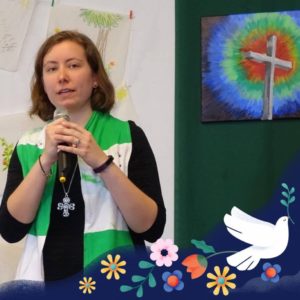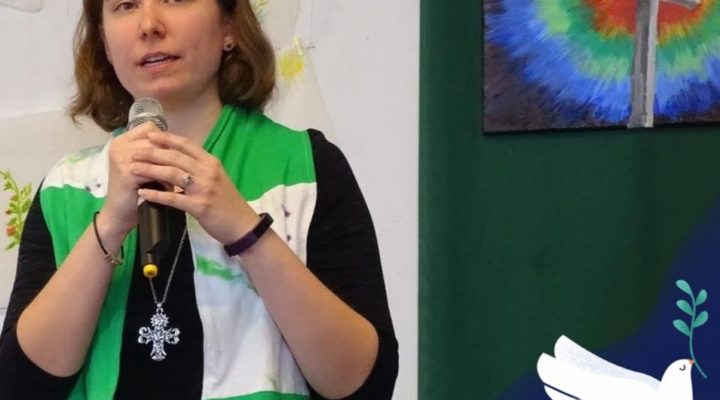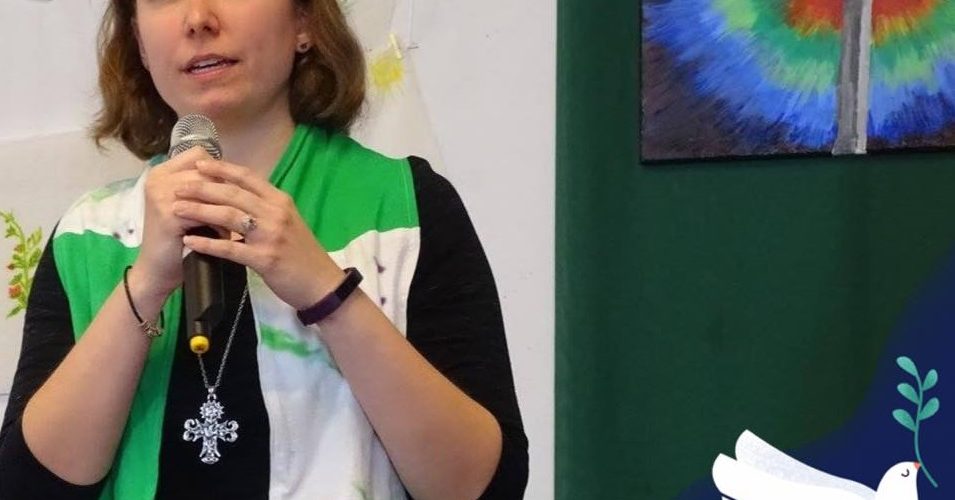A Cooperative Baptist Fellowship-trained pastor who switched to Mennonite says she is still getting over the inner turmoil of belonging to a moderate church that supported her call as a woman in ministry but did not know she was gay.
The Rev. Erica Lea-Simka, a 2014 graduate of CBF-aligned George W. Truett Theological Seminary and the first openly LGBTQ person called as a solo pastor in the Mennonite Church USA, shares her story in a new book collecting testimonies of harm done by congregations to LGBT+ people sitting in their pews.
“A major way the church failed me is by being silently hostile and explicitly hostile toward gender and sexual minorities before I even came out to myself, and even more so after I came out publicly,” she writes in Our Witness: The Unheard Stories of LGBT+ Christians, edited by Brandan Robertson.

Brandan Robertson
Robertson, lead pastor of Missiongathering Christian Church in San Diego, Calif., organized a national conference by the same title in Denver in April 2016 to counter another gathering promoting non-inclusive theology to evangelical leaders.
More than 200 people showed up, and the videos from the conference garnered thousands of views on social media. The response inspired Robertson, author of previous books including Nomad: A Spirituality For Travelling Light, to compile a book combining stories of gay Christians with psychological research and cutting-edge theology to promote conversation and empathy in the non-affirming church.
“The stories of LGBT+ Christians are not untold, but they are often unheard,” Robertson, founder and executive director of Nomad Partnerships, a nonprofit working to foster spiritual and social evolution around the world, writes in the introduction of the book released April 10.
Robertson says LGBT+ people play an integral role in churches but when they come out about their sexuality often find themselves shunned by the communities they love and serve.
“Our voices are drowned out by the sound of dogmatic preaching about being ‘unnatural,’ ‘abominations,’ or ‘threats to family values,’” he writes. “Our voices are ignored by church leaders who sit high in their ivory towers, refusing to acknowledge the legitimacy of our lives and our faith for fear that doing so would threaten their own position of privilege. Our voices are even sometimes silenced by our families whose cold obedience to church teachings leads them to force us into programs to change our identity or push us out of their lives until we ‘repent’ for being who we are.”
In her chapter, Lea-Simka relives the dilemma of receiving communion in a church advertising itself with the motto “all are welcome” while doubting those words were true.
“There would be serious consequences if I came out, and I doubt the pastor was supportive of LGTBQ people because the church is so painfully silent about anything sexuality related or gender related beyond support for women’s ordination,” she writes. “Did that mean they would support my ordination as long as I went along with the assumptions that I was straight?”
Lea-Simka grew up in Houston attending a Southern Baptist church. She found in the Cooperative Baptist Fellowship a tradition willing to embrace a woman called to pastoral ministry but not necessarily someone who is gay.

Erica Lea-Simka
“The church failed me when I desired ordination after serving in different ministries for years, but the structural price to pay of a Texas Baptist church ordaining me if I was out was a higher price than politely sympathetic moderates were willing to pay,” she writes. “Instead, they choose to wait until inclusive ways of doing church and ordination hit the bargain bin so that the price they pay for doing what is right feels more within their comfortable budget.”
Seeking ordination while closeted was not an option, she says, so she waited for a church that would ordain her. Calvary Baptist Church in Washington, D.C., ordained her as a minister in 2015 and named her pastor in residence, a position she held until becoming pastor of Albuquerque Mennonite Church in New Mexico last September.
“I hoped my full coming out, serving a welcoming and affirming church, and my ordination would heal the pains of the ways the church failed me,” she says in the book. “These profound experiences have contributed to healing, yet more healing remains to be seen.”
Previous story:
CBF-trained pastor making LGBT history with Mennonites


